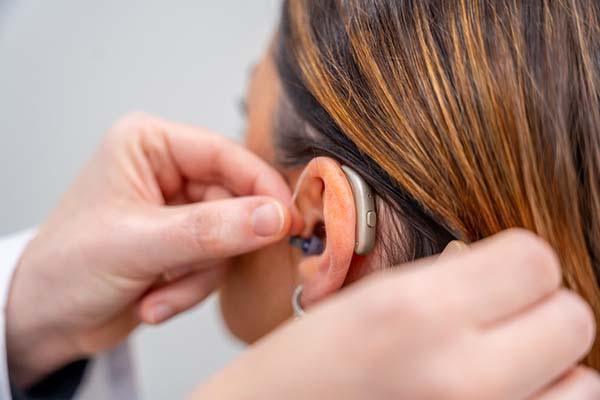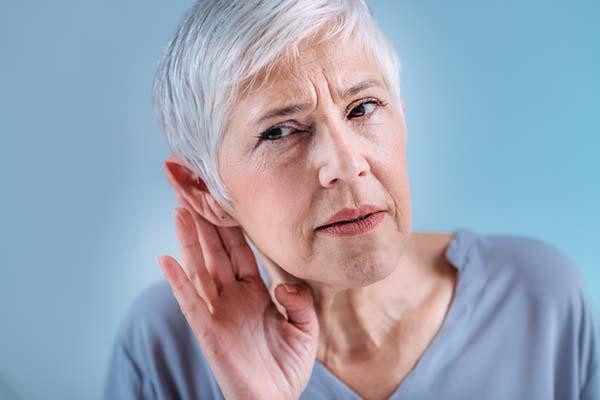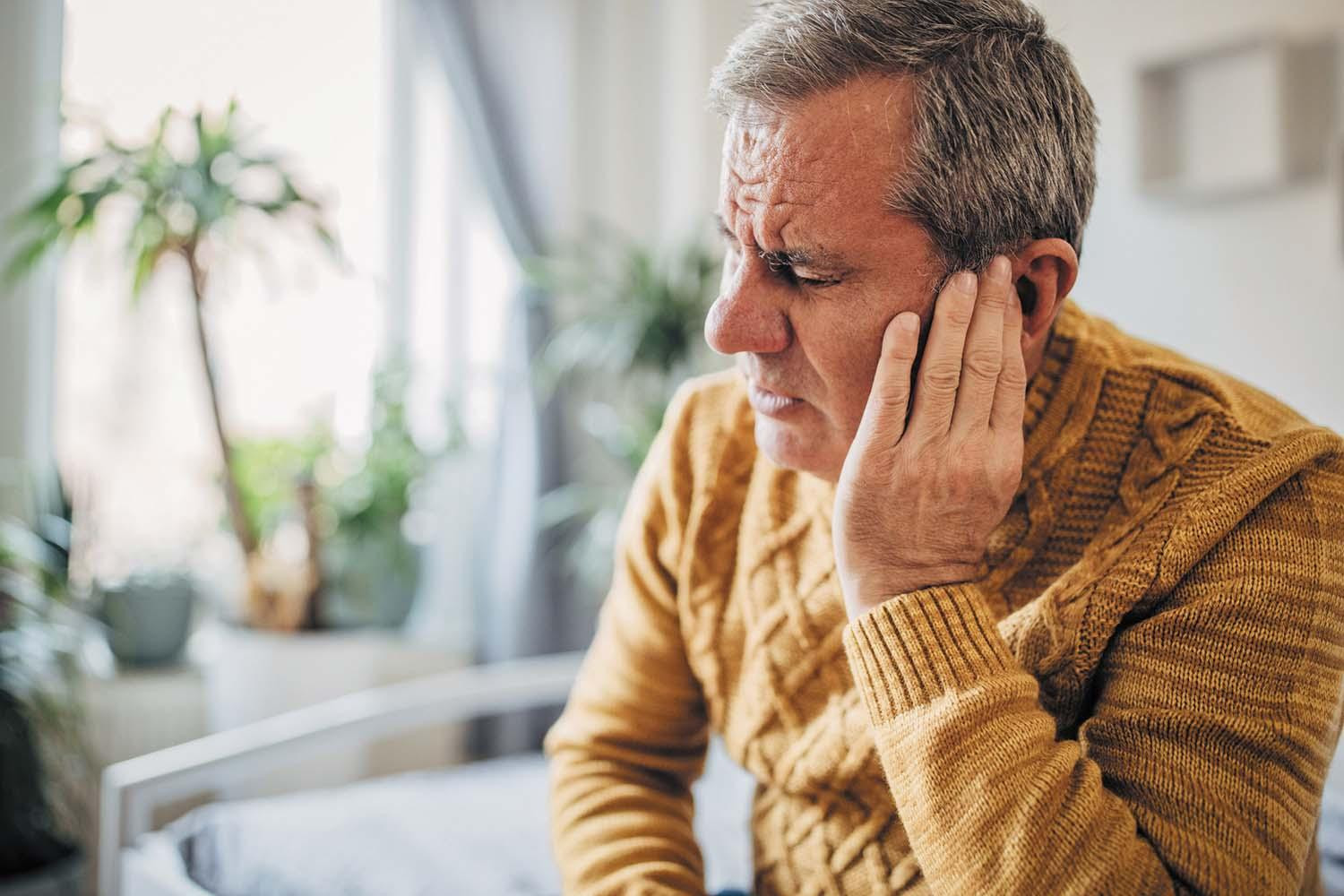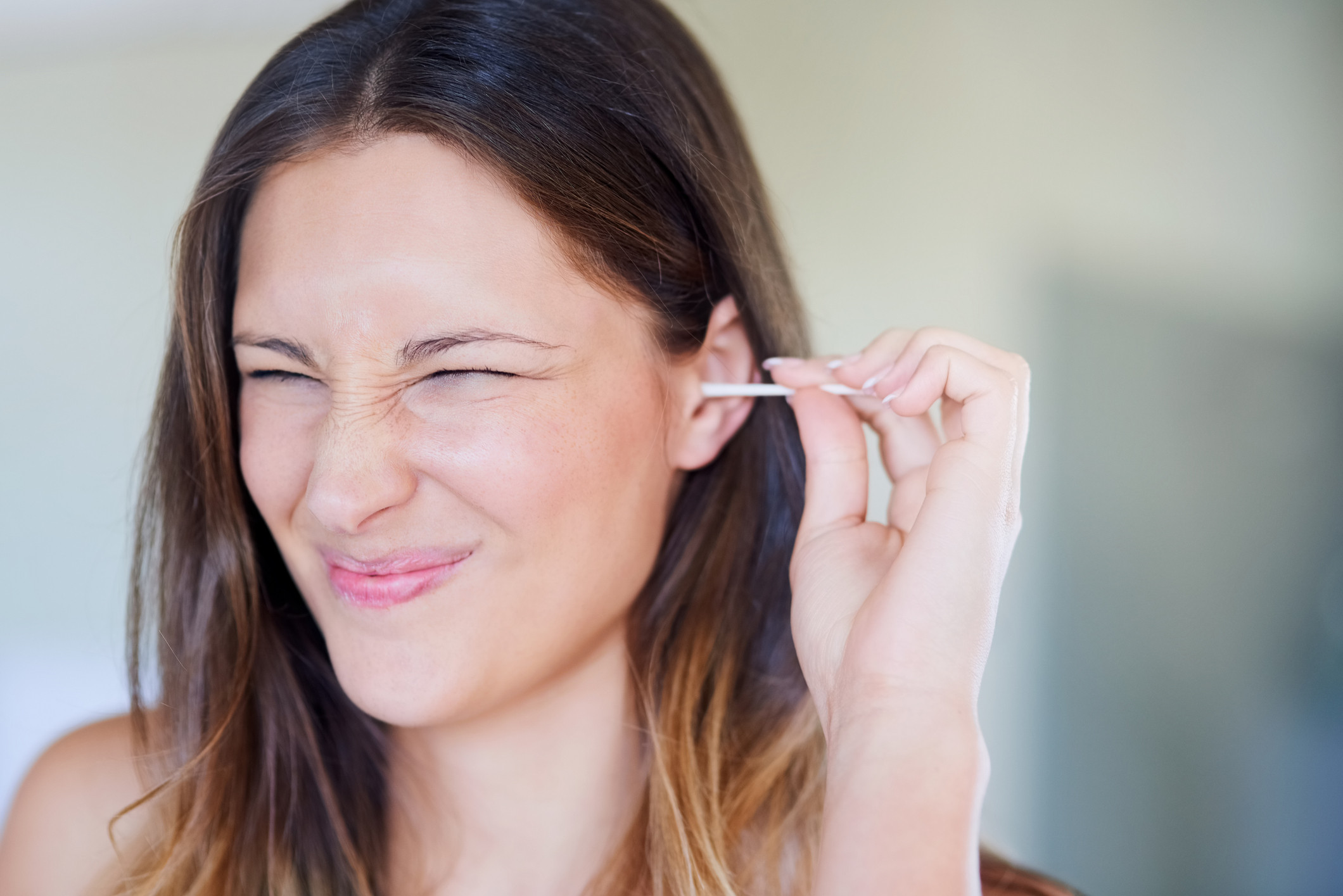
What are somatic workouts?

How to curb your stress eating

How to spot Parkinson’s disease symptoms

8 simple ways to reduce ultra-processed foods in your diet

Heart failure symptoms in women: How they’re different

GERD diet: Foods to avoid to reduce acid reflux

Strong is the new skinny

Everyday habits that sneakily weaken your bones

Don’t wait to get help for back pain

Correcting how you walk may ease osteoarthritis knee pain
Hearing Archive
Articles
People with diabetes face higher risk of hearing loss
A 2025 analysis found hearing loss in 41% to 72% of people with diabetes, which was, on average, more than four times as often as in people without diabetes. People whose diabetes was less well controlled had greater hearing loss. Diabetes lasting 10 years or more doubled the risk.
Ototoxic drugs: Medications that may harm hearing
The term ototoxicity describes inner ear damage from drugs that can cause tinnitus (ringing in the ears), and affect hearing and sometimes balance. Medications more likely to cause ototoxicity include aspirin; the antibiotics azithromycin and clarithromycin; certain chemotherapy drugs; loop diuretics such as furosemide (Lasix); and some biologics. These drugs can damage hearing by injuring hairlike projections in the inner ear. People taking ototoxic drugs should get their hearing tested before, during, and after using the drug.
Tips to cope when hearing hurts
Hyperacusis describes sensitivity to some or all sounds, no matter the volume. Depending on the person, sounds might be uncomfortably loud; cause pain in the ear, head, or another part of the body; trigger negative emotional responses; or make someone dizzy. These reactions might be due to irritated or overactive nerve fibers or muscles in the ear. While doctors have few treatments for hyperacusis, certain strategies help, such as avoiding sound triggers, wearing hearing protection, and engaging in sound therapy.
Is there finally a way to measure tinnitus?
Havard researchers have identified biomarkers that appear to capture tinnitus severity for the first time. Scientists made the connection after analyzing the facial responses and pupil dilation of study participants as they listened to pleasant, neutral, or unpleasant sounds. The findings, when fed to a computer model, accurately predicted the severity of symptoms participants had reported on questionnaires. Scientists hope the biomarkers will lead to tools that gauge tinnitus severity and treatment effectiveness.
Do I need to clean my ears?
Earwax should be removed only if it causes problems with hearing, ringing in the ears, or an earache. To unblock the wax, people can use an over-the-counter ear-cleaning treatment to flush it out. If this is not successful, see your doctor.
What's the best self-fitting strategy for over-the-counter hearing aids?
A small randomized trial in 2024 found that both self-adjustment and in-situ audiometry were effective strategies to match self-fitting hearing aids to personal hearing needs. However, self-adjustment devices had the best satisfaction rates and consistent use.
When is tinnitus more than a nuisance?
Tinnitus (ringing in the ears) is a sound people hear in their ears or head that no one else can hear. It is often described as buzzing, humming, ringing, static, or whooshing. While tinnitus is rarely a serious problem, people should get checked to see if it is related to a medical condition.
Reconsider cognitive behavioral therapy for tinnitus
Cognitive behavioral therapy (CBT) helps redirect negative thoughts and emotions. It's often prescribed to help people cope with tinnitus (a phantom ringing in the ears). A 2024 study found that CBT is most likely to be beneficial when tinnitus symptoms are severe.

What are somatic workouts?

How to curb your stress eating

How to spot Parkinson’s disease symptoms

8 simple ways to reduce ultra-processed foods in your diet

Heart failure symptoms in women: How they’re different

GERD diet: Foods to avoid to reduce acid reflux

Strong is the new skinny

Everyday habits that sneakily weaken your bones

Don’t wait to get help for back pain

Correcting how you walk may ease osteoarthritis knee pain
Free Healthbeat Signup
Get the latest in health news delivered to your inbox!
Sign Up











